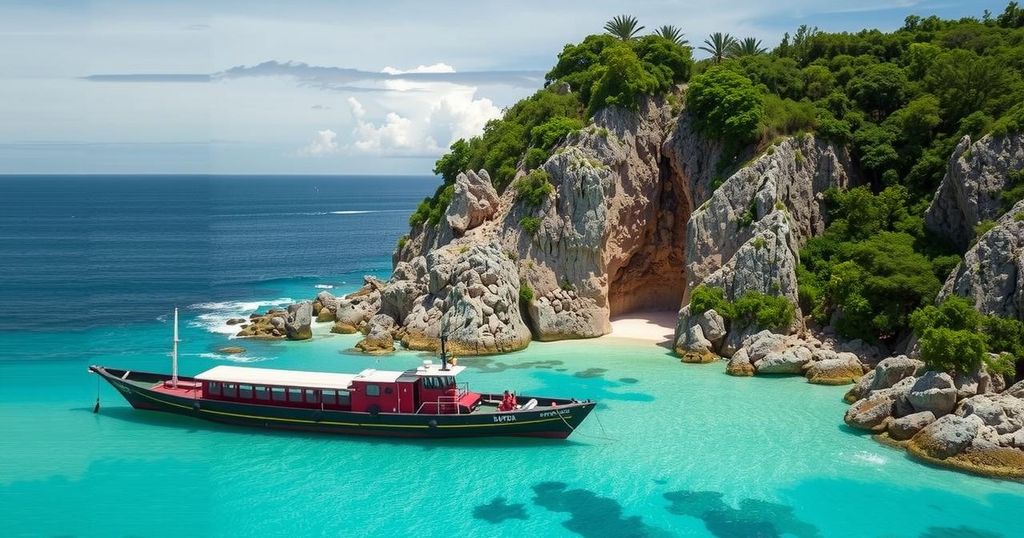Guyana plans to ask the ICJ for intervention against Venezuela’s intention to elect a governor in the disputed Essequibo region, claiming this action violates international law. The region’s ownership has been contested since colonial times, with tensions increasing following oil discoveries offshore. An ICJ ruling on the border is not expected soon, as Venezuela has until August to respond to Guyana’s claims.
Guyana has announced its intention to approach the International Court of Justice (ICJ) in response to Venezuela’s proposal to hold gubernatorial elections in the Essequibo region, an area rich in natural resources that Venezuela claims as its own. This initiative contradicts a December 2022 agreement aimed at preventing escalation of tensions between the two nations. Guyana’s foreign ministry firmly stated that any effort by Venezuela to conduct elections in the disputed territory would breach international law as articulated in the U.N. Charter, given that the region is recognized as part of Guyana. Furthermore, the ministry aims to secure provisional measures from the ICJ to halt Venezuela’s plans, which it claims jeopardize the ongoing judicial proceedings regarding the border dispute.
Venezuela’s historical claim to Essequibo stems from the colonial era, when the region was included in its boundaries under Spanish dominion. The 1899 boundary delineation, affirmed by international arbitration, has long been contested by Venezuela, which contends that a subsequent 1966 agreement invalidates the prior decision. Guyana first petitioned the ICJ in 2018 to affirm the legitimacy of the 1899 ruling. However, with Venezuela granted until the end of August to submit its response, a definitive ruling from the court is not anticipated in the near future.
The heightened tensions surrounding this dispute have been accentuated by Venezuela’s increased interest in Essequibo since significant oil and gas deposits were uncovered offshore in 2015. The region currently contributes to an oil production rate of 650,000 barrels per day. In addition, recent events, such as Guyana’s objections to Venezuela’s military constructing a bridge on Ankoko Island, have raised further concerns about violations of sovereignty between the two countries. Relations had appeared to stabilize previously, especially following U.S. military support for Guyana’s territorial claims.
The territorial dispute over the Essequibo region has its roots in colonial history, significantly influenced by the interplay of historical boundaries and international law. Venezuela’s assertion of ownership dates back to the Spanish colonial period, while the 1899 arbitration established the current border that Guyana maintains is valid today. Tensions regarding the matter intensified post-2015 due to the discovery of substantial oil reserves in Guyana’s territorial waters, which have heightened Venezuela’s interest in the disputed territory. With both nations seeking resolutions through legal and diplomatic channels, the involvement of international bodies like the ICJ underscores the global perspective on territorial disputes and resource claims.
The situation between Guyana and Venezuela illustrates the complexities of international territorial disputes, especially in regions with valuable natural resources. Guyana’s recent declaration to seek intervention from the ICJ reflects its commitment to safeguard its sovereignty against Venezuela’s electoral ambitions in the disputed Essequibo region. The ongoing legal processes and historical contexts suggest that a lasting resolution may require extensive deliberation and bilateral negotiations, while the geopolitical dimensions involving external powers add an additional layer of complexity.
Original Source: apnews.com






